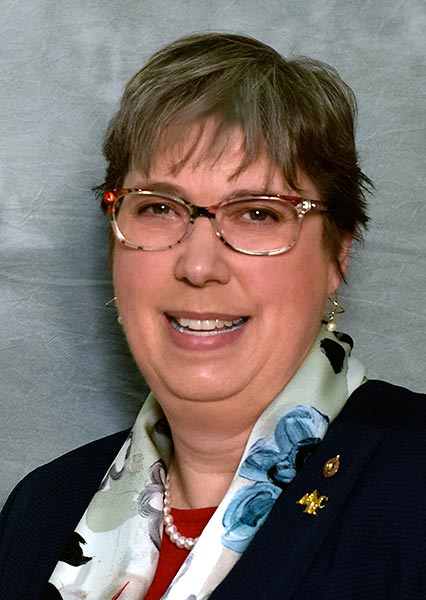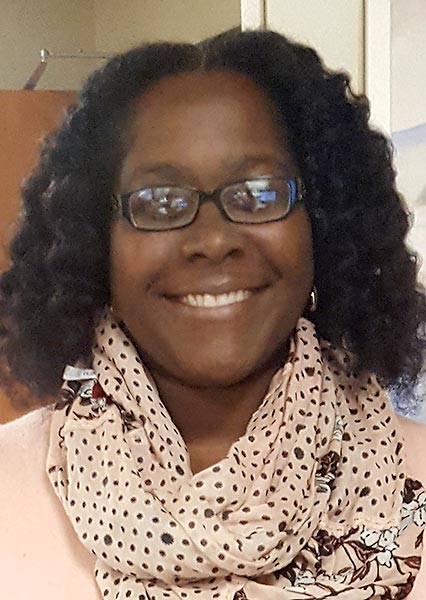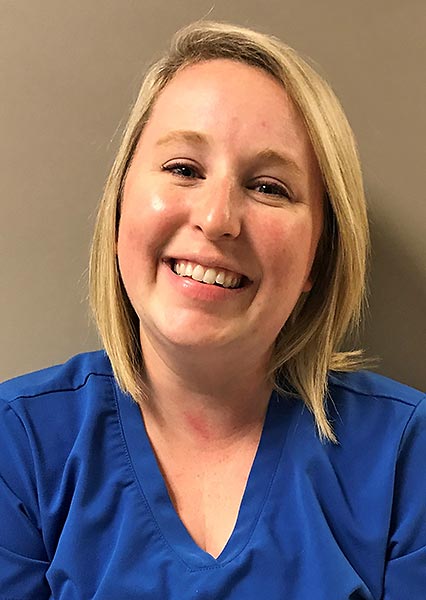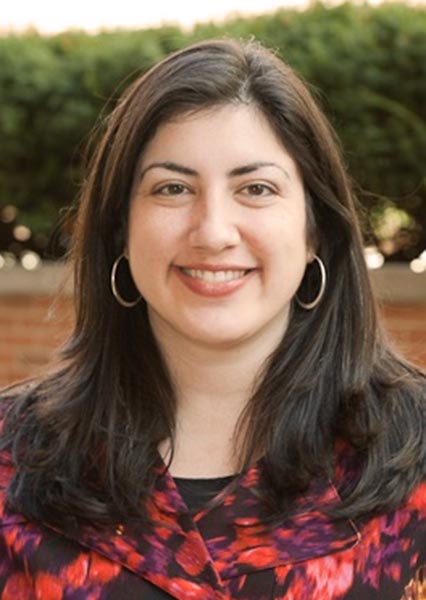Respiratory care is a challenging profession and newcomers to the field can use all the help they can get. That’s where an RT mentor comes in, and when these seasoned professionals step up to guide less experienced RTs through the process of building their careers, good things happen for both.
She understood me

Just ask Ellen Becker, PhD, RRT-NPS, RPFT, AE-C, FAARC, and Maya Jenkins, MS, RRT-NPS. The two first met when Jenkins was a student in the respiratory care program at Rush University and Dr. Becker was one of her professors.
“I did always look up to Dr. Becker while I was a student,” Jenkins said. “She was one of the few professors in our program who had her doctorate at the time, which was impressive.”
Like Jenkins, Dr. Becker had returned to school later in life to earn her advanced degrees, and that resonated with the younger woman.
“I felt Ellen understood me as a nontraditional, returning student,” Jenkins said.
She turned to Dr. Becker for help and advice during the program and she always found an open door. About a year after she graduated she spoke with her about her interest in teaching in respiratory care and an informal mentor/mentee relationship was born.

“I knew that Maya would be an excellent instructor, but recognized that she needed more formal teaching experience to build her resume,” Dr. Becker said. ”Thus, we began working together more closely.”
She let Jenkins know about teaching opportunities that came up and shared job openings in the academic arena. Today Jenkins works full time as a clinical respiratory coordinator at Central DuPage Hospital/Northwestern Medicine and just became an adjunct faculty member in the College of Health Sciences at Rush last summer.
“Ellen helped facilitate this appointment, which has been a very valuable learning experience for me,” Jenkins said.
The stars aligned
Kali Watts, MS, RRT, and her mentor, Georgianna Sergakis, PhD, RRT, FAARC, have had similar experiences.
“I applied for the respiratory therapy program at Ohio State and was accepted to begin my junior year,” Watts said. Dr. Sergakis is an assistant professor in the program.

“Through the program, Georg was always there for me to lend a helping hand, whether it be in the classroom or in helping me get a job with my limited permit at The Ohio State Wexner Medical Center.”
After earning her BSRC, Watts spent a year thinking about where she wanted to go with her career and ultimately decided to enroll in graduate school, with an eye toward teaching in the profession.
“I reached out to Georg to write me a recommendation for graduate school, whereupon we met and caught up,” Watts said. “It was at this time discussing my future goals that Georg asked if I would have any interest helping to teach labs to the next class of respiratory students — I was ecstatic!”
Dr. Sergakis says the stars just aligned.
“At the time we were planning on instructional support for the next academic year,” she said. “I was permitted by the medical center RT department — which employed Kali — to have Kali as a lab instructor for a few of our courses. As expected, Kali was a wonderful addition to our instructional team.”

When Watts entered graduate school, Sergakis became her advisor and co-professor and the relationship has only grown since.
“Georg has been an indescribable help in my career,” Watts said. Without her, I would never have realized my love for teaching, and without her realizing my potential, I would never had gotten valuable experience teaching in the classroom and lab setting.”
She credits her mentor for helping her pursue her current position as team leader of education at Wexner.
Strong believers
Both of these mentor/mentee teams are strong believers in the power of the mentor/mentee relationship.
“My mentoring role reinforces how much others want to learn and it only requires a little bit of assistance on my part to help others flourish,” Dr. Becker said.
She believes mentoring is especially essential in her area of the profession, since so many of today’s educators are nearing retirement.
“We need more master’s degree-prepared educators,” Dr. Becker said. “It is gratifying to help others move in this direction.”
Dr. Sergakis says the experiences she’s had with Watts have reaffirmed her own career choices.
“Seeing her excitement for the class, lab, and clinical teaching environment reminded me of why I entered into education in the first place,” Dr. Sergakis said. “We were so very lucky to have her as part of our team.”
Jenkins and Watts tout the value from the mentee side of the fence.
“As medical professionals we are constantly growing and learning, whether we are brand new to the field or have been working for 30 years,” Jenkins said. “If one wants to improve their skills clinically, educationally, or in research there is always someone more senior or knowledgeable who might be willing to act as a mentor.”
Watts agrees.
“As you enter the professional realm of respiratory therapy, you realize how important it is to have someone that helps you navigate the proper avenues and can support you as you struggle with some of the same struggles they have gone through,” Watts said.
Take the initiative
How can mentees find mentors?
Watts believes RTs should look for someone who appears truly interested in seeing them thrive.
“Finding someone who cares about you and your career and wants to see you succeed is such a vital piece in growing in your career and in your personal life goals,” Watts said.
“Mentor/mentee relationships begin with simple conversations,” Jenkins said. She suggests RTs turn to someone they already have a good rapport with — such as a professor or clinical preceptor — to get started.
“Most seasoned RTs are willing to assist or can direct them to someone else who can,” Jenkins said.
Dr. Becker agrees.
“The mentee needs to take the initiative,” Dr. Becker said. “Begin by thinking about what you want to gain.” Providing a potential mentor with a specific goal allows that potential mentor to determine if he or she can be of any assistance.
Dr. Sergakis has this advice for her peers who might be thinking about mentoring a new therapist: “Remember what it is like to be in their shoes. Think about all that you wish you had known in the beginning. Don’t forget that you can learn a thing or two from your mentee. It is such a mutually beneficial relationship.”